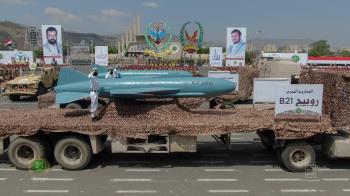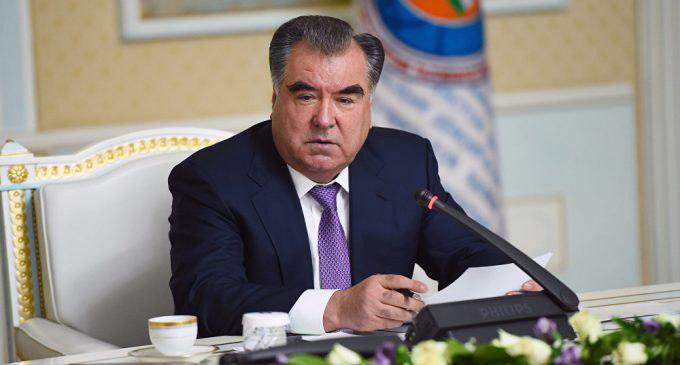Alwaght- Tajikistanis voted on Sunday to elect a president from five presidential candidates, including the incumbent President Emomali Rahmon.
According to the central commission for elections and referendums, there were 68 electoral districts across Tajikistan, with 3,375 polling stations within the country and 39 set up abroad. 4.9 million people registered to vote.
In addition to Rahmon, the four other candidates are Miroj Abdulloev from the Communist Party of Tajikistan, Rustam Latisana from the Agrarian Party, Abduhalim Gafforov from the Socialist Party, and Rustam Rahmatzoda from the Economic Reforms Party.
According to Tajik laws, the election will be declared valid, if more than 50 percent of registered voters cast their ballots. The winner should garner more than half of the vote.
The election process was monitored by 145 international observers from international organizations, including the Shanghai Cooperation Organisation and the Commonwealth of Independent States. Besides, 267 representatives of local and foreign media covered the election.
What does Tajikistan election law say?
According to the constitution and the Central Commission for Elections and Referenda, the president of Tajikistan is elected through free, transparent, and fair votes of people for a seven-year term.
The law says that the candidate should be at least 35 years old, a national of Tajikistan, speak the official language of the country, and has been living in the country for the past 10 years. If over 50 percent of the eligible people vote, the election is valid, and a candidate who secures above 50 percent, will be the elected president of the country. The ruling party of Tajikistan is the People’s Democratic Party, led by Rahmon. The last election was held in 2013 and according to official sources, Rahmon won 83.92 percent of the votes in an 86.64 percent turnout.
Family government of Tajikistan
The first article of the national constitution specifies that the government of Tajikistan is democratic, but it seems that democracy is largely symbolic and non-existent on the ground. Rahmon has a large family of seven daughters and two sons, all occupying state posts and staunchly seeking to save the power in their family.
With his old age, Rahmon was thought to avoid registering for the presidency and it was believed that his 32-year-old son, Rustam, would join the race. But speculations went wrong as the president last month officially announced that he would run for a fifth term.
His son was picked speaker of the Supreme Assembly, equal to the senate, earlier this year and is expected to fill his father’s presidency post after retirement. Rustam is simultaneously the mayor of the capital Dushanbe.
The constitution was reviewed in 2016 and the legal age for the candidacy was reduced to 30 from 35 years old, something viewed by experts a preparation of the ground for the transition of power to the son. In 2015, the Supreme Assembly granted Rahmon the title of “national leader”, giving the president immunity from legal prosecution for life.
The old age of the president may prove an obstacle ahead of the president doing his duty in the next seven years. But his son's existence in the post of speaker of the Supreme Assembly can assure the family that in case of death or resignation of the president, the power will remain in the family.
Experts suggest that the constitutional review was to facilitate the son’s path to the replacement of his father. He keeps company of his father in many images circulated nationwide and thus he is a familiar face to next take the post of presidency. The prediction of the election result is never a hard job, as certainly Rahmons will lead the country at least to a known future.
Rahmon re-elected
A day after the election, the election commission stated that Rahmon again won the post with 90 percent of the votes. It continued that over 85 percent of the eligible voters participated.
By winning in an election boycotted by the opposition forces, Rahmon will stay in power up to 2027, continuing to hold a post he held for the past three decades.
Rahmon push for a large turnout
The voting process started at 6 am in 3375 polling stations, with about 5 million casting their votes.
Radio Free Europe’s Tajik service reported that the government organized concerts, distributed free food, and arranged entertainments in a bid to secure the largest turnout. Reports say some voters were transported to the polling stations with paid buses.
Rahmon’s autocracy in Tajikistan
Rahmon has held the office since 1992, the year his country gained independence following the collapse of the Soviet Union. He continues his rule in the shadow of a lack of considerable challenger.
After President Alexander Lukashenko of Belarus, Rahmon is the longest-serving president of a former Soviet republic. He was elected in four elections over the past three decades which are seen by Western observers as neither free nor fair. During these years, the Islamic Renaissance Party was the most influential opposition party. The party was deregistered by Tajikistan's interior ministry in 2015 and then banned a month later, after being designated as a terrorist organization by the country's Supreme Court. Two of the party's leaders were subsequently sentenced to life in prison by the Supreme Court. The ban ushered in massive arrests of the party members.
Currently, the only real opposition party is the Social Democratic Party that boycotted the vote. Radio Free Europe said that the result will hardly face challenge and questioning as there is no strong rival to Rahmon, or conditions go to nationwide protest like what happened last week in Kyrgyzstan following the presidential election.
Tajikistan bad conditions
Tajikistan is one of the poorest countries of Central Asia, with the poverty rate kept growing over the past two decades. In 2017, the poverty rate was around 29 percent.
The country after Kyrgyzstan has the smallest economy in the Central Asia region and is the poorest regional country. Tajikistan’s population is more than Kyrgyzstan by one-thirds and is way behind Kyrgyzstan in terms of GDP (gross domestic product).
A major part of the country’s income is the remittance sent home by Tajik workers in Russia. The coronavirus pandemic outbreak hit hard this source of income to Tajiks in Russia. Last year, millions of Tajik workers in Russia sent $2.2 billion in remittance to their home country that accounted for one-third of Tajikistan’s GDP.
Tajikistan election pushed to sidelines by regional developments
It seems that in no Central Asian country election is as influential for people as in Tajikistan.
President Nursultan Nazarbayev of Kyrgyzstan resigned from his post last year after three decades of ruling as his country immersed in social anger and discontentment caused by a critical economic situation as oil prices have been slumping since 2014. Although he still is a big decision-maker in the country and heads the National Security Council, his resignation was a response to public discontentment. Recent developments in Kyrgyzstan following the presidential election are represented by street protests. Although the government showed an iron fist, the protests exhibit more serious reactions by Kyrgyz people to unfair elections.
What takes people to the polling stations and what causes such elections to continue in the country is the lack of people’s united and determined anti-government mobilization and opposition and also lack of international pressures against the president’s election arrangements. Although Europe always questions the transparency of elections in Central Asian countries and calls for fair and free elections, it seems that in the Tajikistani case, it is far from being serious in chasing this goal in practice and remains in words.
The geographical distance of Europe from Tajikistan can be one of the reasons for no rigidity towards Dushanbe. The European Center for Democracy and Human Rights hired temporary observers to supervise the elections. These observers, as political analysts, legal deputies, media analysts, and election analysts prepared for activity in the country since September 23, 2020.
However, the election results, and even possible protests to the election process, do not seem to have the ability to make any differences in the conditions of this Persian-language Central Asian country.



























